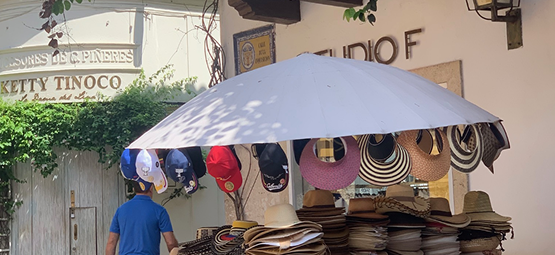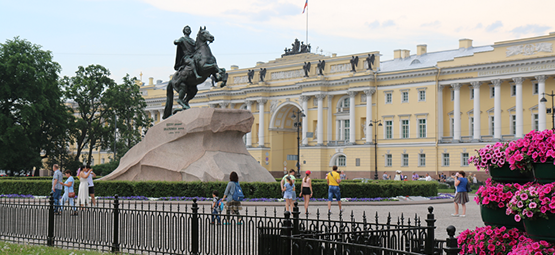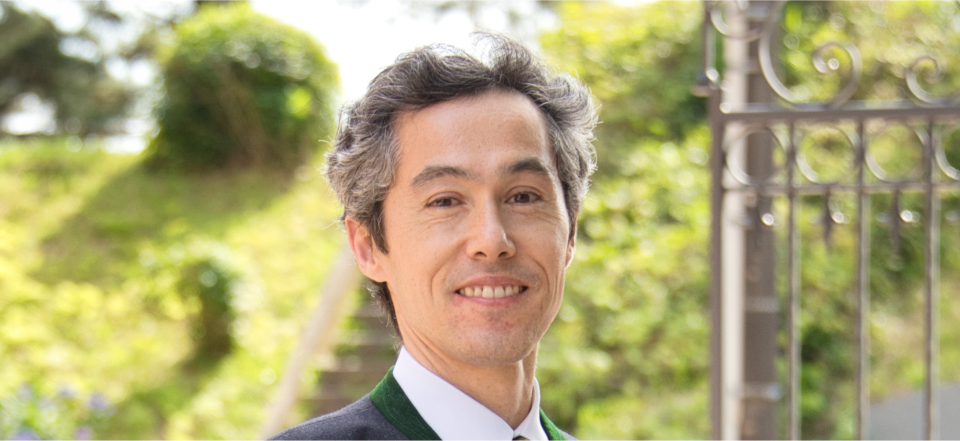Our Program’s Mission
-
As globalization continues to transform our world, society has a pressing need for capable, globally oriented individuals who can bring to their chosen field an understanding and appreciation of global diversity and regional identity, while maintaining a firm grounding in their own culture. Needless to say, such individuals will require a high level of multilingual proficiency, and Sophia University Faculty of Foreign Studies, armed with a long tradition of foreign-language education and a repertoire of cutting-edge teaching and learning methods, is uniquely positioned to meet the challenge.
Mastery of Three LanguagesStudents entering the Faculty of Foreign Studies (FFS) enroll in a department corresponding to the major foreign language of their choice. They begin by working to gain a command of that foreign language, along with advanced Japanese and English skills. (English majors choose a third language as a minor.)
Study and Research in a Wide Choice of ConcentrationsWith this multilingual proficiency as a foundation, students delve into specialized study and research, choosing from a wide selection of fields. There’s no need to commit to a particular discipline or research topic at the outset. Our curriculum is structured so that first- and second-year students can freely sample course offerings in a wide range of concentrations, even while building their foreign-language skills through departmental instruction. This gives them an opportunity to find a research topic of special interest to them as they acquire basic knowledge of various regions of the world and learn the methodology of various disciplines. From there, they systematically deepen their studies in the specialty of their choice. Foreign language and advanced research are the twin engines of the FFS’s unique academic program. Only by harnessing both can we cultivate the qualities our society needs to advance: a global yet deep understanding of the world’s diverse linguistic spheres (Japan included), forming a foundation for the capacity to analyze a wide range of issues from multiple perspectives. Read on to learn more about our academic program.
Our Curriculum
-
Curriculum Structure
First year Second year Third year Fourth year General Education English Studies Required English courses 3rd & 4th year English courses Basic area-studies courses (English-speaking world) German Studies Basic German courses German III/Advanced reading comprehension Basic area-studies courses (German-speaking world) French Studies Basic French courses Integrated French courses Basic area-studies courses (French-speaking world) Hispanic Studies Basic Spanish courses Integrated Spanish courses Basic area-studies courses (Spanish-speaking world) Russian Studies Basic Russian courses Russian Research courses Basic area-studies courses (Russian-speaking world) Luso-Brazilian Studies Basic Portuguese courses Integrated Portuguese courses Basic area-studies courses (Portuguese-speaking world) Concentrations Choosing from nine concentrations, students pursue wide-ranging study and research in a specialized field, starting with introductory courses and progressing to the more advanced core courses, and finally to seminar courses that provide individualized research guidance. North American Studies European Studies Latin American Studies Russian and Eurasian Studies Linguistics Asian Studies* Middle Eastern and African Studies* International Politics* Civil Society and International Cooperation*
Departments
Students study their major language (i.e., first foreign language) through the language offerings in their department. Click on the links below for information about each department’s curriculum.
-

English Studies -

German Studies -

French Studies
-

Hispanic Studies -

Russian Studies -

Luso-Brazilian Studies
Concentrations
Students in the Faculty of Foreign Studies also complete a systematic program of study and research in one of nine specialized fields, including linguistics, international politics, and area studies. Click on the links below to read about the curriculum in each concentration.
What Sort of Students Enroll in the FFS?
-
・Students who want to master foreign languages or increase their proficiency
・Students who want to make use of their foreign-language skills to expand their knowledge in a particular field
・Students with an interest in the politics, economics, history, culture, and other attributes of various regions and peoples of the world
・Students with an interest in fields like language and linguistics, international politics and international relations
・Students interested in cross-cultural communication
Career Options for FFS Graduates
-
・Employee in businesses with a global reach
・Official in the Foreign Ministry or an international organization
・International cooperation/development worker
・Language educator
・Interpreter/translator
・Scholar/researcher in area studies (history, politics, economics, culture), international relations, linguistics, etc.








 English Studies
English Studies
 German Studies
German Studies
 French Studies
French Studies
 Hispanic Studies
Hispanic Studies
 Russian Studies
Russian Studies
 Luso-Brazilian Studies
Luso-Brazilian Studies
